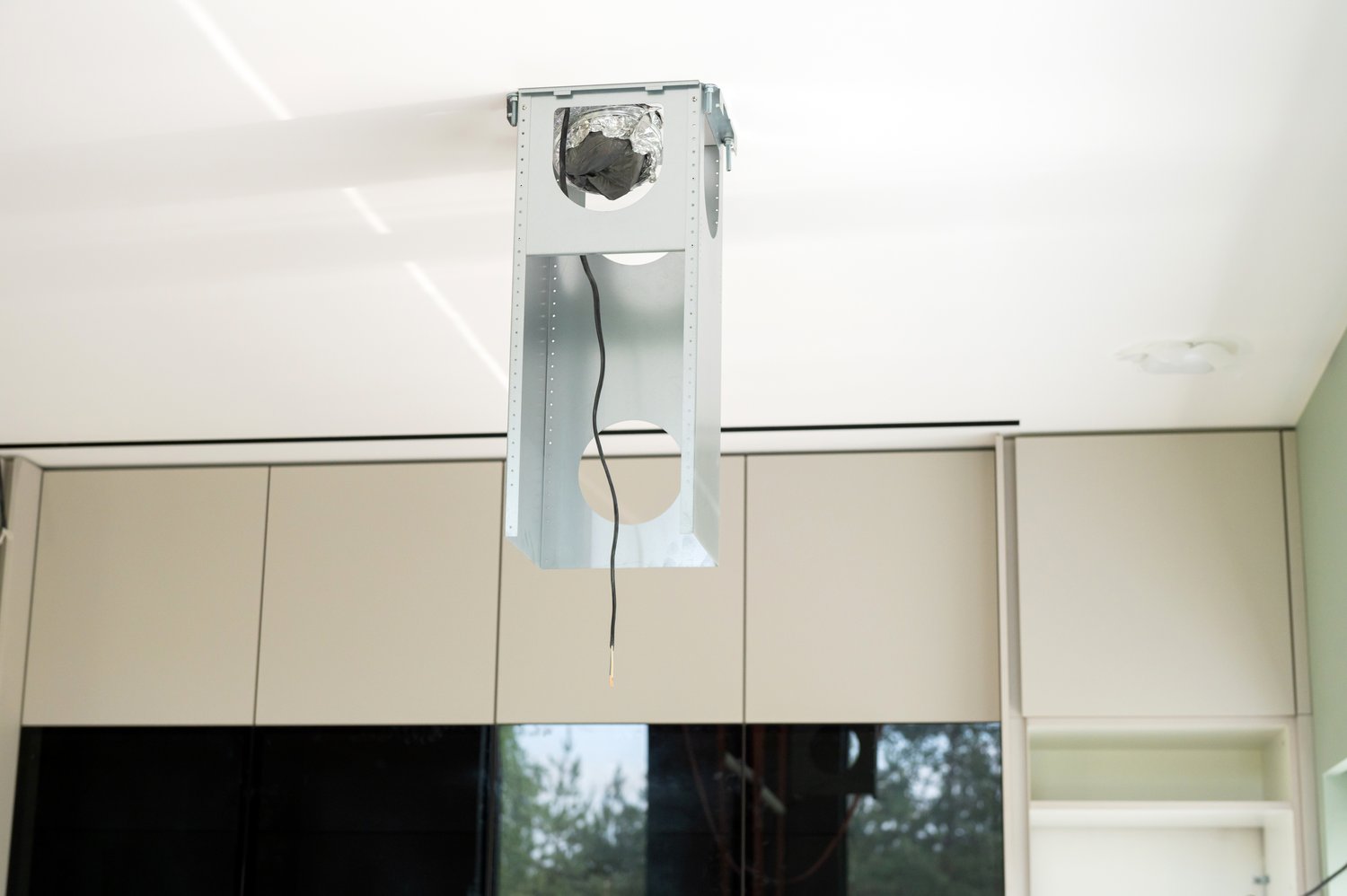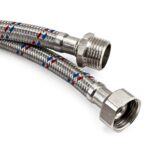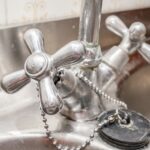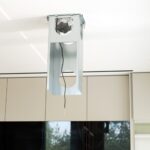The kitchen is often considered the heart of the home, where aromas and flavors come together to create delicious meals. However, inefficiencies in your range hood ventilation can lead to lingering odors and an uncomfortable cooking environment. Understanding the intricacies of range hood functionality is crucial for maintaining optimal kitchen air quality and comfort.
- Learn to identify the telltale signs of poor range hood performance, such as excessive smoke and persistent cooking smells.
- Discover common culprits like clogged filters or malfunctioning fans that could be hindering your range hood’s efficiency.
- Explore effective maintenance routines and solutions to keep your ventilation system working smoothly.
- Examine when an upgrade might be necessary to enhance your kitchen’s ventilation capabilities.
By diving deeper into these key areas, you’ll gain valuable insights to troubleshoot, maintain, and potentially upgrade your range hood system, ensuring a fresher and more enjoyable cooking environment.
Identifying Range Hood Ventilation Problems
Spotting range hood ventilation problems early can save you a lot of trouble and ensure your kitchen’s air quality remains optimal. One of the primary signs of poor range hood ventilation is lingering odors. If you notice that cooking smells persist long after you’ve finished your meal, your range hood might not be effectively expelling air.
Another common indicator is the presence of excessive smoke during cooking. When your range hood isn’t ventilating properly, smoke and steam can linger, leading to a hazy kitchen environment. Additionally, observe any increase in moisture on your kitchen walls or cabinets, as this can signal inadequate ventilation.
Listen for changes in the noise level of your range hood. An unusually loud or quiet fan might suggest mechanical issues impacting its performance. If you experience any of these issues, it’s crucial to investigate further or consult a professional to address them promptly.
Common Causes of Range Hood Ventilation Problems
Understanding the typical causes of range hood ventilation problems can help you diagnose and fix issues more effectively. One frequent cause is clogged filters. Over time, grease and grime build up on filters, reducing their ability to capture smoke and odors efficiently.
A malfunctioning fan is another common culprit behind poor ventilation. The fan can fail due to electrical issues or wear and tear, affecting its capacity to draw air away from your stovetop.
Improper installation of the range hood can also lead to performance issues. If the exhaust duct is incorrectly sized or connected, airflow may be restricted, preventing effective ventilation.
Lastly, check for blockages in the ductwork. A build-up of debris or external obstructions can significantly hinder air passage, causing strains on the system and decreasing its effectiveness.
Solutions and Maintenance for Range Hood Ventilation Problems
When it comes to ensuring optimal kitchen ventilation, regular maintenance of your range hood is crucial. A well-maintained system not only performs better but also extends its lifespan. One key aspect is to regularly check and clean the range hood filters. Grease and dirt accumulation can impede airflow, leading to ineffective ventilation.
Begin by removing the filters and washing them with warm, soapy water. For persistent grime, soaking the filters in a solution of vinegar and baking soda can be quite effective. It’s advisable to clean the filters every month, especially if you cook regularly.
An often overlooked component of range hood systems is the vent hood fan. Ensure the fan blades are free of built-up grease and debris, as these can have a significant impact on the efficiency of ventilation. Use a damp cloth to wipe the blades, taking care not to disturb the wiring.
Another critical step in maintaining effective ventilation is inspecting the ductwork. Blockages in the ductwork can obstruct the passage of smoke and odors, causing them to linger in your kitchen. If any issues are detected, remove blockages carefully or consult a professional.
Incorporating a routine inspection of your range hood’s motor will prevent any unforeseen breakdowns. Listen for unusual noises or a lack of suction, which can indicate problems. Regular maintenance of these components can tremendously improve the airflow efficiency in your kitchen.
Upgrading Your System to Address Range Hood Ventilation Problems
For those experiencing persistent issues, the option of upgrading your range hood system can present a viable solution. Inefficient or outdated systems may not be equipped to handle the ventilation needs of a modern kitchen. Assessing your current setup, including checking the ventilation capacity of the hood, is an essential first step.
Consider aspects such as the hood’s extraction rate, measured in cubic feet per minute (CFM), and whether it matches the requirements of your cooking style and kitchen size. A higher CFM unit may be necessary for vigorous cooking activities like frying or grilling.
Select a hood with advanced features, such as multiple fan speeds or improved filter technology, to enhance efficiency. Models with automated sensor functions can adjust the fan speed based on the cooking intensity, ensuring optimal performance with minimal input.
Upgrading also allows for better energy efficiency, which can lower electricity costs over time. Installing a system with an Energy Star certification ensures that your new range hood operates efficiently.
If the idea of upgrading feels daunting, seeking professional guidance can help assess the specific needs of your kitchen and provide tailored solutions for improved range hood performance.
Professional Help for Persistent Range Hood Ventilation Problems
While many range hood ventilation problems can be addressed with DIY solutions, there are instances when it’s crucial to seek professional assistance. Knowing when to call a professional can save you time, prevent further damage, and ensure the safety of your kitchen environment.
Recognizing Complex Issues
If you encounter issues such as electrical problems, persistent strange noises from the motor, or unexplained power failures, it’s a signal that professional intervention is needed. These complex problems often require specialized tools and expertise to diagnose and repair.
Experience Matters
Professionals have the knowledge and experience to identify and fix issues in your range hood’s ductwork, ensuring air is vented effectively. They can also assess if there are underlying issues with the installation that could be affecting performance.
Warranty and Insurance Considerations
Attempting to fix certain problems yourself may void the warranty of your range hood. A professional repair service ensures that any necessary parts replaced or repaired will maintain the warranty’s validity. Additionally, professional services are typically insured, offering peace of mind against potential mishaps during the repair process.
Improve Energy Efficiency
A professional assessment can help optimize your system, leading to improved energy efficiency and reduced utility costs. This is particularly valuable for older systems that may not meet current efficiency standards.
In conclusion, while tackling minor ventilation issues yourself is sometimes possible, don’t hesitate to bring in professionals for more persistent or complex problems. Their expertise ensures your range hood system remains safe, efficient, and in optimal working condition.
Frequently Asked Questions: Range Hood Ventilation
What are the signs of poor range hood ventilation?
Signs include lingering odors, excessive smoke, and noisy operation.
How often should I clean the range hood filters?
Clean the filters every 1 to 3 months, depending on usage.
What causes range hood fans to malfunction?
Clogged filters and faulty wiring are common causes.
How can I improve my range hood’s ventilation performance?
- Regular maintenance
- Proper installation
- Upgrading the system can improve performance.
When should I seek professional help for range hood issues?
Seek help if you experience persistent issues or are unsure about DIY repairs.





